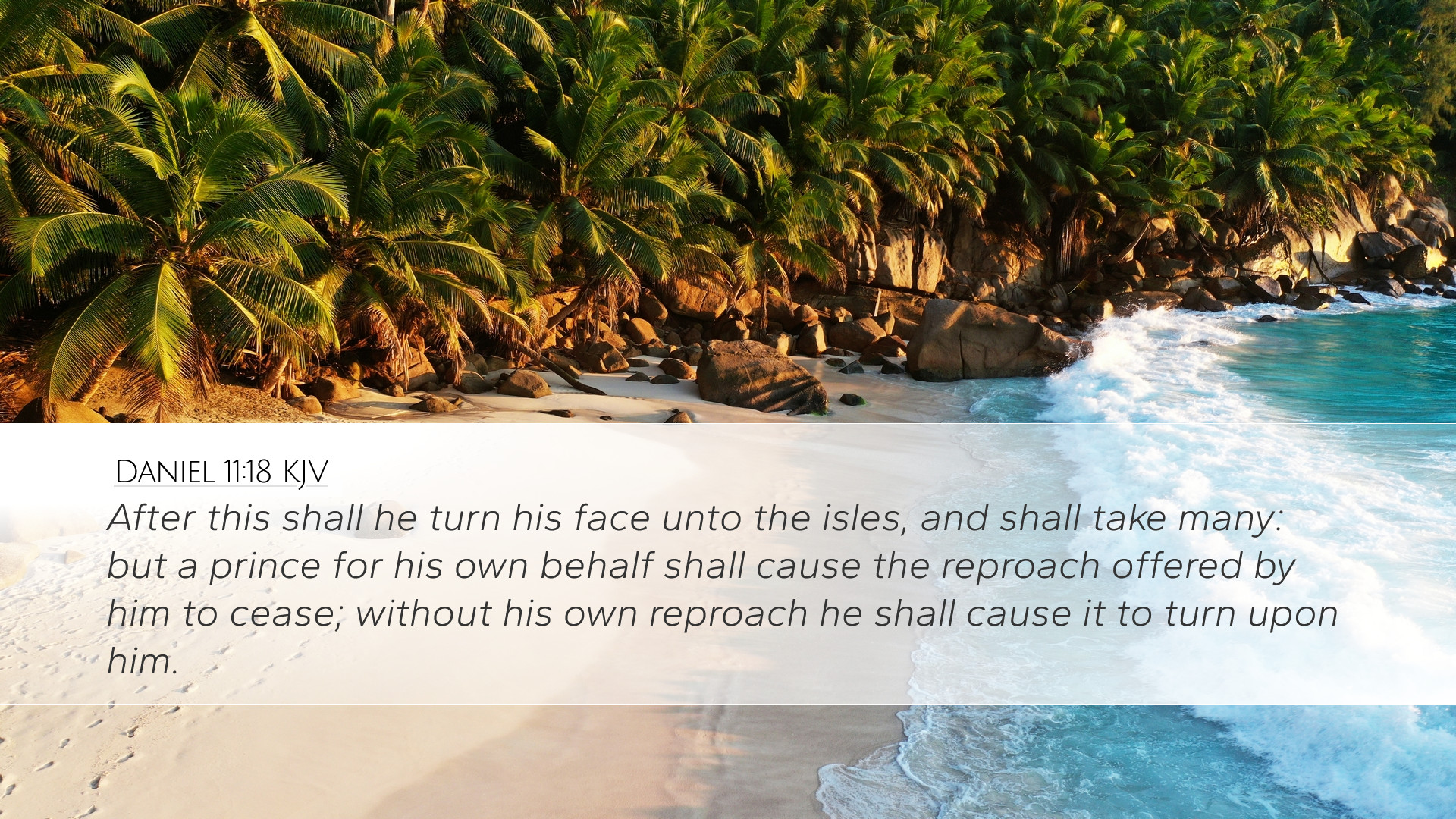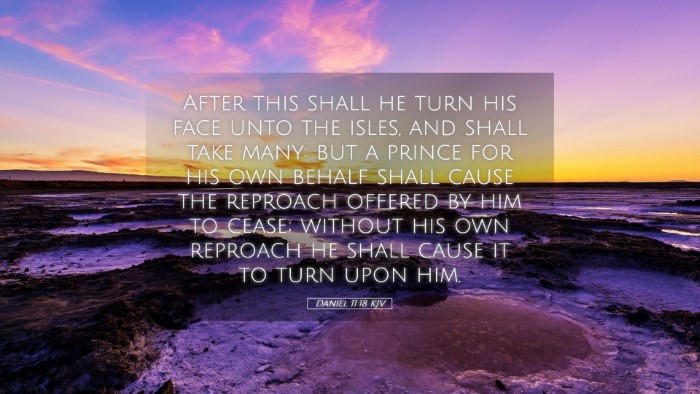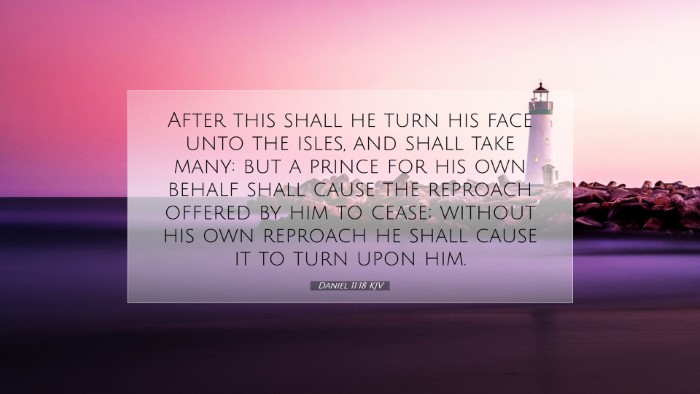Commentary on Daniel 11:18
Text of Daniel 11:18 (KJV): "After this shall he turn his face unto the isles, and shall take many: but a prince for his own behalf shall cause the reproach offered by him to cease; without his own reproach he shall cause it to turn upon him."
Introduction
Daniel 11:18 presents a vivid picture of geopolitical maneuvering and the complexities of power dynamics in the ancient Near East. In this verse, we see the ongoing conflict involving a ruler often interpreted as a representation of various historical figures, particularly those aligned with the dynamics of the Greek and Persian empires.
Contextual Background
To fully understand the implications of this verse, it is important to grasp its historical context. The Book of Daniel is often viewed through the lens of the turbulent period of the Jewish exile, filled with prophetic visions that interlace divine sovereignty with human agency. The preceding chapters lay a foundation that describes the rise and fall of various kingdoms, culminating in the conflicts witnessed by Daniel.
Historical Interpretations
- Matthew Henry: Henry notes that the phrase "turn his face unto the isles" implies a shift in focus toward the maritime powers, which could refer to nations or regions that are distanced from the central land of conflict, perhaps highlighting the wider implications of conflict beyond immediate borders.
- Albert Barnes: Barnes elaborates on the notion of "taking many," suggesting that the ruler’s conquests will significantly affect distant nations, indicating both military and political dominance.
- Adam Clarke: Clarke suggests that these events can be understood as part of a divine timeline, where nations respond to the authority of prevailing powers, leading to both diplomacy and conflict.
Thematic Analysis
In this verse, several themes emerge that offer deeper theological reflection:
Power and Influence
The aspiration of rulers to expand their territories is met with both resistance and commendation. The verse portrays a ruler turning his face to seek further conquest. This movement mirrors the broader human tendency to seek power, showing the unpredictable nature of political landscapes.
Prophetic Assurance
A significant aspect of prophetic literature is the assurance that, despite the chaos of human ambition, God's purpose prevails. In this instance, the full context of the chapter indicates the ultimate downfall or divine judgment upon those who misappropriate power for personal gain.
The Role of Divine Providence
As these events unfold, the hand of God is subtly woven through the text. The rulers' actions are not merely human in origin. Rather, they are part of a divine tapestry where God's plans are fulfilled amidst human free will. This highlights the duality of agency where God's sovereignty operates in harmony with earthly decision-making.
The Reproach and Redemption
The verse concludes with a compelling statement about reproach. The desire for a "prince for his own behalf" suggests that the ruler's ambitions could bring about both honor and dishonor. The correcting power of accountability is displayed where the reproach intended for one can ultimately revert back upon the instigator—a poignant reminder of how actions bear consequences.
Theological Implications
The layers of meaning in Daniel 11:18 yield rich theological insights pertinent to contemporary audiences:
Ethics in Leadership
This passage challenges leaders to examine the motives behind their actions. Whether in ecclesiastical or civic domains, the desire for honor should be balanced with a commitment to ethical principles. Leaders should strive to act justly, knowing that the pursuit of self-serving goals often leads to a legacy of reproach.
Faith amidst Uncertainty
For believers, this scripture serves as a reminder of the importance of faith in God's overarching plan. It reassures that while earthly powers may rise and fall, God's kingdom endures. The aspects of prophecy should encourage Christians to remain steadfast, with the assurance that God will ultimately right the wrongs.
Conclusion
In our exploration of Daniel 11:18, we've witnessed a rich intersection of history, theology, and application. The narrative not only informs our understanding of past events but also serves as a poignant reminder to contemporary leaders and believers alike about the nature of power, the weight of accountability, and the unwavering sovereignty of God.


